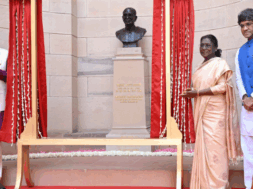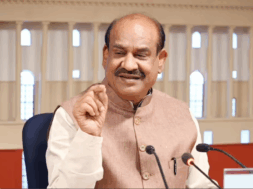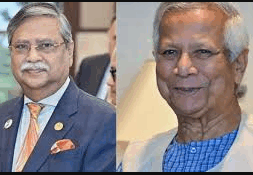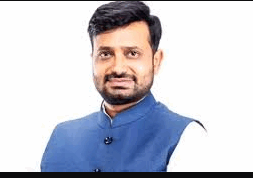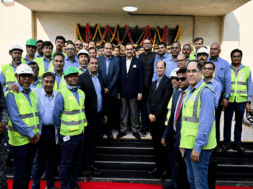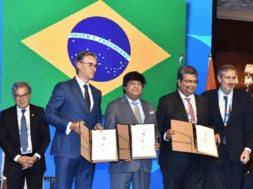
Pakistan: At the SCO Summit, India opposes China’s BRI, again
Virendra Pandit
New Delhi: India on Wednesday once again refused to endorse China’s ambitious multicontinental “One Belt One Road (OBOR) Initiative,”, also known as the Belt and Road Initiative (BRI), becoming the only country in the Shanghai Cooperation Organisation (SCO) not to support the controversial USD 200 billion connectivity project.
A joint communique unveiled at the end of the SCO’s Council of Heads of Government conclave, hosted by Islamabad, however, said Russia, Belarus, Iran, Kazakhstan, Kyrgyzstan, Pakistan, Tajikistan, and Uzbekistan reaffirmed their support for the Chinese initiative, the media reported.
It said the countries noted ongoing work on the implementation of the project, including efforts to link the Eurasian Economic Union with the OBOR.
India has been refusing to endorse OBOR in previous SCO Conclaves as well, as part of it passes through a portion of Jammu and Kashmir forcibly occupied by Pakistan which ceded it to China.
India has been severely critical of the OBOR, as it includes the so-called China-Pakistan Economic Corridor (CPEC) that passes through Pakistan-occupied Kashmir (PoK).
There has been growing global criticism against the OBOR as a number of countries are reeling under the burden of the Chinese debt trap while implementing projects relating to the initiative.
In his address at the SCO conclave, External Affairs Minister S Jaishankar said, “Debt is a serious concern” but did not elaborate further.
“Collaborative connectivity can create new efficiencies,” he said.
The joint communique said the heads of delegations noted the proposal to create a “Greater Eurasian Partnership” with the participation of the SCO, Eurasian Economic Union, Association of Southeast Asian Nations as well as other interested states and multilateral associations.
“The heads of delegations, reaffirming their desire to ensure stable economic and social development in the SCO region, noted the importance of implementing the SCO Economic Development Strategy for the period up to 2030 and the program of multilateral trade and economic cooperation of the SCO member states,” it said.
“They stressed the need for coordinated efforts through the mechanisms of relevant cooperation to implement the respective action plans,” it added.
Pakistan Prime Minister Shehbaz Sharif chaired the SCO conclave.
Besides Dr. Jaishankar, the Conclave was attended by Chinese Premier Li Qiang, Belarus Prime Minister Roman Golovchenko, Kazakh PM Olzhas Bektenov, Russian PM Mikhail Mishustin, Tajik PM Kohir Rasulzoda, Uzbek PM Abdulla Aripov, Kyrgyzstan’s Chairman of Ministers Cabinet Zhaparov Akylbek and Iran’s First Vice President Mohammad Reza Aref.

